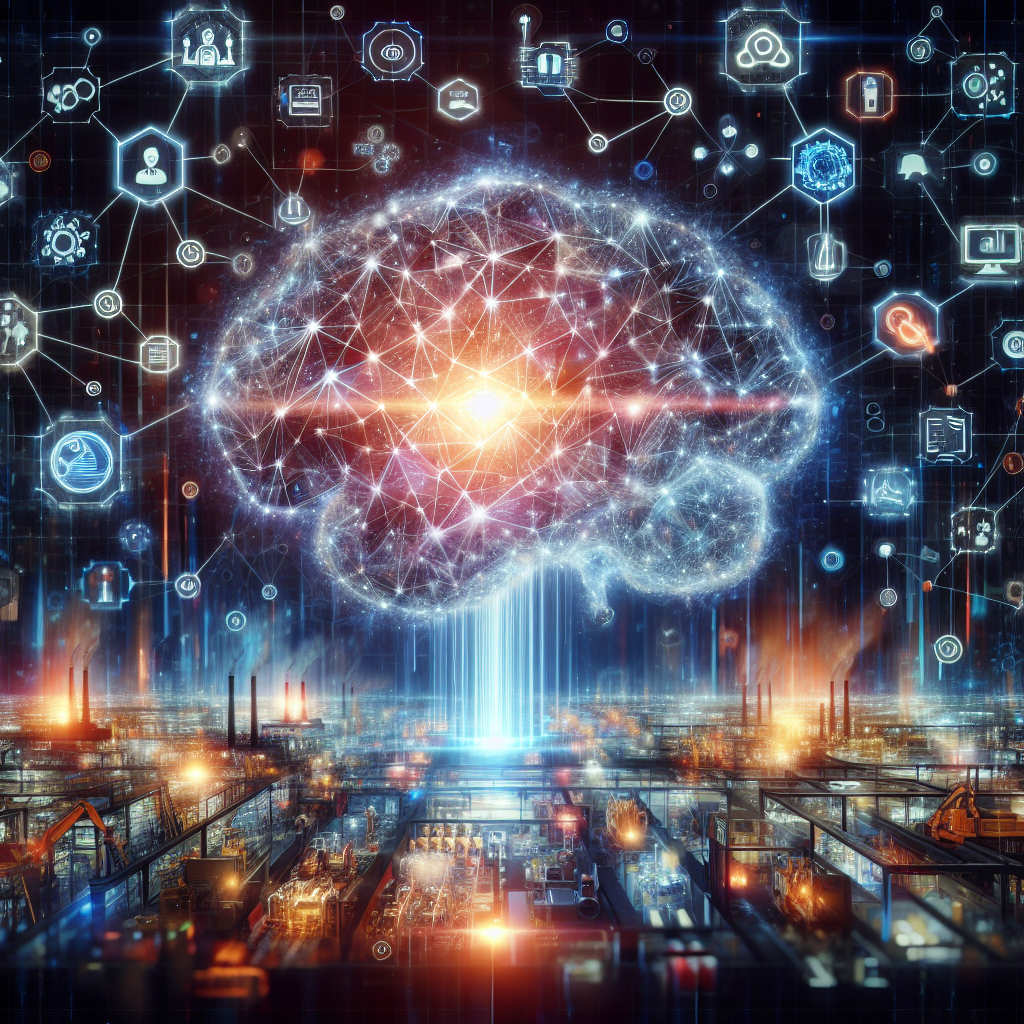Unleashing the Potential of AGI: How It’s Reshaping Industries
Artificial General Intelligence (AGI) is a term that refers to a type of artificial intelligence that is capable of performing any intellectual task that a human can do. Unlike narrow AI, which is designed to perform specific tasks, AGI is able to generalize across a wide range of tasks and learn new ones without being explicitly programmed. This level of intelligence has the potential to revolutionize industries across the board, from healthcare to finance to transportation.
In this article, we will explore the potential of AGI and how it is reshaping industries around the world.
The Rise of AGI
The concept of AGI has been around for decades, but recent advances in machine learning and deep learning algorithms have brought us closer to achieving this level of artificial intelligence. Companies like OpenAI and DeepMind have made significant strides in developing AGI systems that can outperform humans in tasks like playing complex games and generating natural language.
These advancements have sparked a wave of interest and investment in AGI, with tech giants like Google, Facebook, and Microsoft pouring resources into research and development. The potential applications of AGI are vast, from automating routine tasks to discovering new drugs to predicting market trends.
AGI in Healthcare
One of the industries that stand to benefit the most from AGI is healthcare. With the ability to analyze vast amounts of medical data and make accurate diagnoses, AGI has the potential to revolutionize the way we approach healthcare. AGI-powered systems can help doctors identify diseases earlier, recommend personalized treatments, and predict patient outcomes with unprecedented accuracy.
In addition, AGI can streamline administrative tasks like scheduling appointments and processing insurance claims, freeing up healthcare professionals to focus on patient care. With the rise of telemedicine and remote monitoring, AGI can also help bridge the gap between patients and providers, ensuring that even those in remote areas have access to quality healthcare.
AGI in Finance
The financial industry is another sector that is ripe for disruption by AGI. With the ability to process vast amounts of financial data in real-time, AGI-powered systems can make better investment decisions, detect fraud, and predict market trends with greater accuracy than human analysts. This can lead to more efficient markets, reduced risk, and increased profitability for financial institutions.
In addition, AGI can help individuals make better financial decisions by analyzing their spending habits, recommending savings strategies, and even managing their investments. With the rise of robo-advisors and digital banking, AGI is poised to revolutionize the way we manage our finances in the future.
AGI in Transportation
The transportation industry is also undergoing a transformation thanks to AGI. With the rise of autonomous vehicles, drones, and smart infrastructure, AGI is enabling safer, more efficient transportation systems that can reduce accidents, congestion, and emissions. AGI-powered systems can analyze traffic patterns, predict demand, and optimize routes in real-time, leading to smoother and more reliable transportation networks.
In addition, AGI can revolutionize logistics and supply chain management by optimizing inventory levels, reducing transportation costs, and minimizing delivery times. With the rise of e-commerce and on-demand services, AGI is becoming increasingly important in ensuring that goods and services reach consumers quickly and efficiently.
FAQs about AGI
What is the difference between AGI and narrow AI?
AGI refers to artificial intelligence that is capable of performing any intellectual task that a human can do, while narrow AI is designed to perform specific tasks within a limited domain. AGI is more flexible and adaptable than narrow AI, as it can generalize across a wide range of tasks and learn new ones without being explicitly programmed.
How close are we to achieving AGI?
While significant progress has been made in developing AGI systems, we are still a long way from achieving true artificial general intelligence. Researchers are still grappling with challenges like common sense reasoning, creativity, and ethical decision-making, which are essential components of human-level intelligence. It is difficult to predict when AGI will be achieved, but many experts believe that it is only a matter of time.
What are the potential risks of AGI?
Like any powerful technology, AGI comes with potential risks and challenges. These include job displacement, ethical concerns, security threats, and the potential for misuse. AGI-powered systems have the potential to outperform humans in many tasks, leading to widespread job loss in certain industries. There are also concerns about the ethical implications of AGI, such as bias in decision-making and lack of transparency in algorithms. It is important for researchers, policymakers, and industry leaders to address these risks and ensure that AGI is developed and deployed responsibly.
Conclusion
The potential of AGI is vast, with the ability to revolutionize industries across the board. From healthcare to finance to transportation, AGI is reshaping the way we work, live, and interact with the world around us. While there are still challenges to overcome and risks to address, the future of AGI is bright, with the potential to bring about positive change and innovation in every sector of the economy. As we move closer to achieving true artificial general intelligence, it is important for researchers, policymakers, and industry leaders to work together to ensure that AGI is developed and deployed responsibly, ethically, and equitably.

